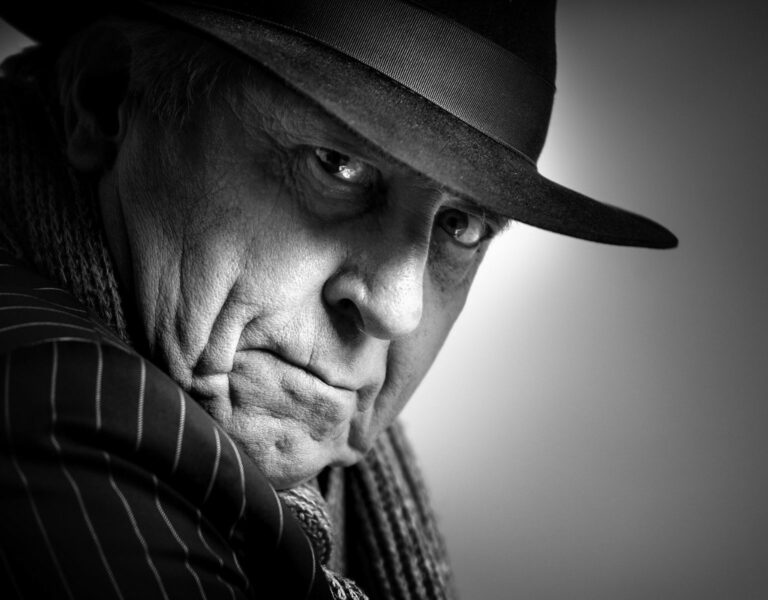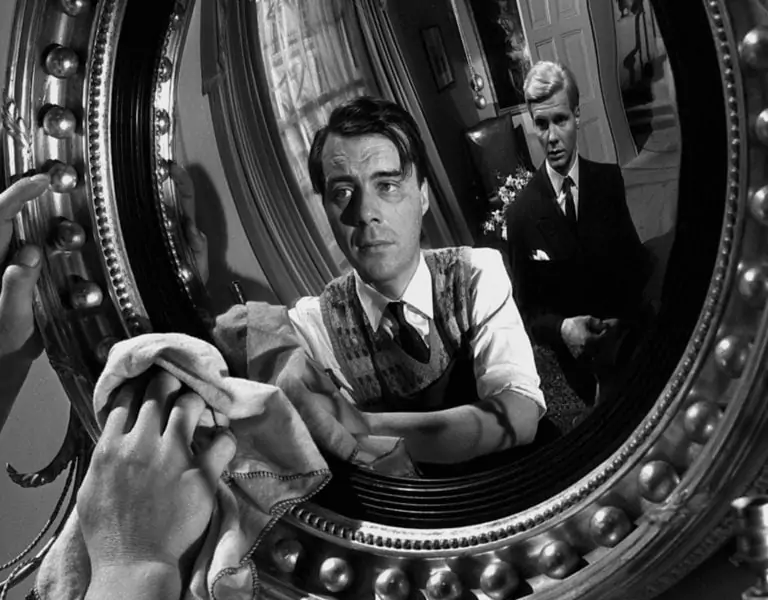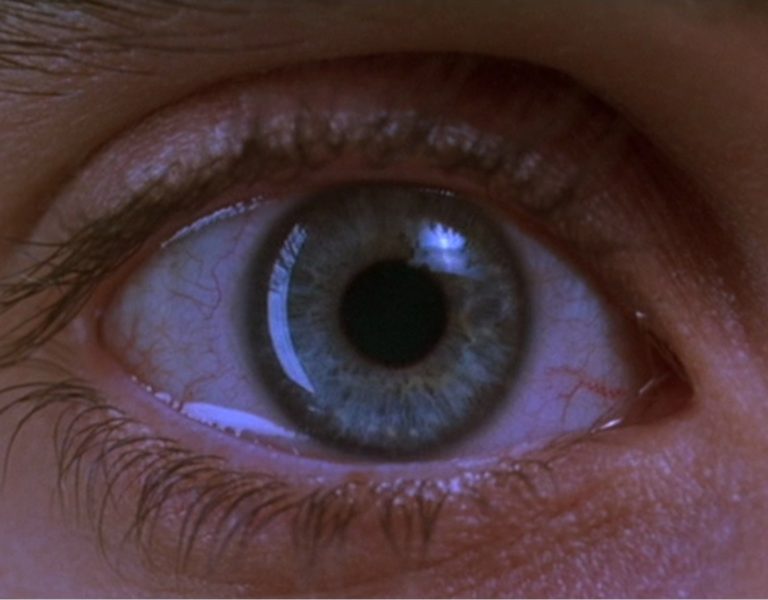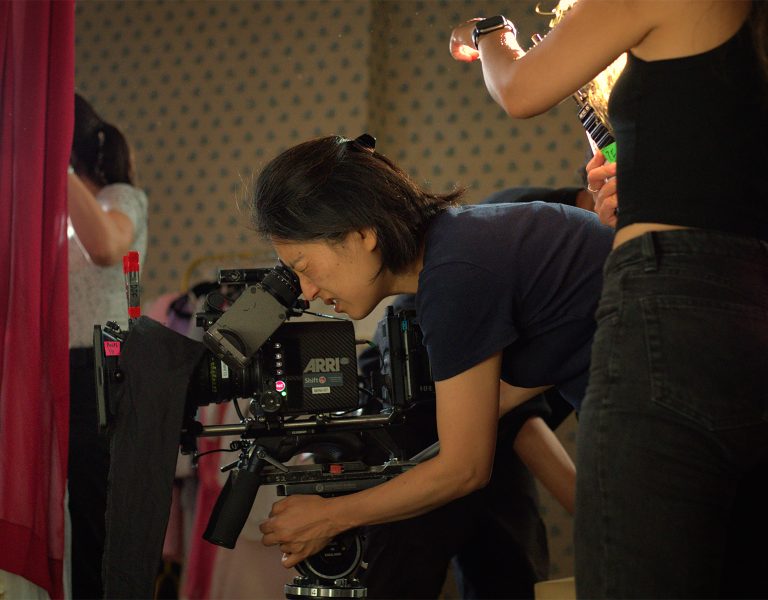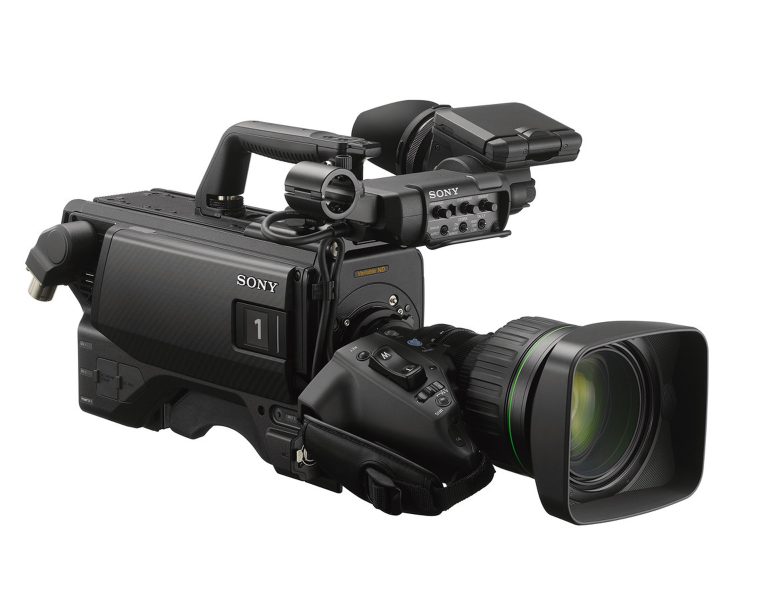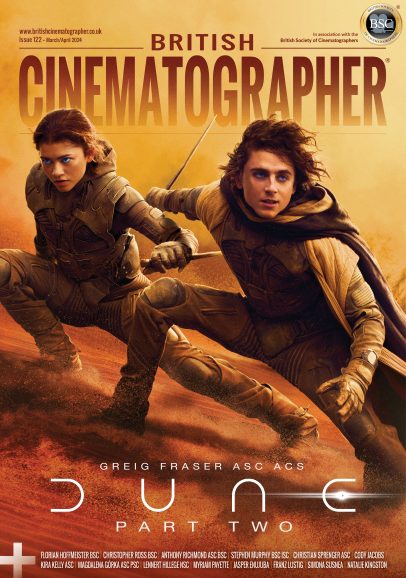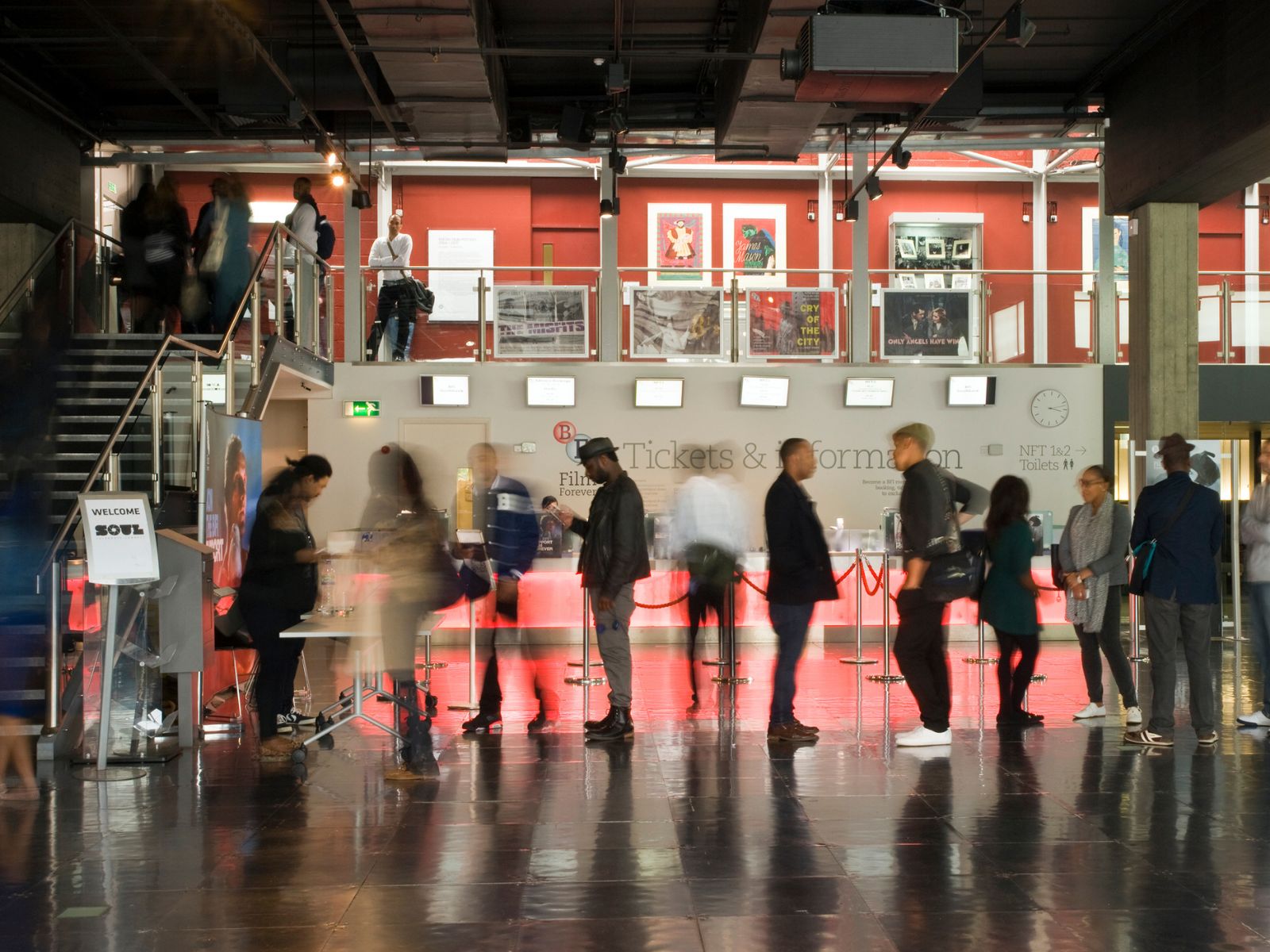
The BFI has revealed the programme for January 2023 at BFI Southbank. Highlights include the first month of a complete two-month retrospective dedicated to master Japanese filmmaker Akira Kurosawa, the beginning of a three-month countdown of Sight and Sound’s Greatest Films of All Time 2022, following the results of the 10-yearly poll revealed on 1 December, and The Cinematic DNA of Enys Men, a season of films curated by Bait director Mark Jenkin to mark the release of his new film Enys Men.
Described by Martin Scorsese as a cinematic ‘giant’, Akira Kurosawa’s influence on generations of international filmmakers cannot be overestimated. Many cite the legendary director as a source of inspiration for their own work, with his enduring titles such as Ikiru (1952), Throne of Blood (1957), The Hidden Fortress (1958), Yojimbo (1961) and Ran (1985) responsible for promoting Japanese cinema and culture to an international audience. Kurosawa, a complete retrospective season, takes place across January and February and will include the BFI Distribution re-release of the director’s groundbreaking Rashomon (1950), in cinemas UK-wide and on BFI Player from 6 January.
The BFI Southbank retrospective, in partnership with the Japan Foundation, has been co-programmed by director Asif Kapadia and film author Ian Hadyn Smith. It has been arranged via six thematic strands so that audiences can easily delve into Kurosawa’s rich and varied filmography, his narrative preoccupations, finely drawn characters and cinematic visual style. In January, Kurosawa’s filmography is explored through the lens of Society, Social Status and Honour. Film screenings will include a one-off opportunity to see his masterpiece Seven Samurai (1954) on the biggest screen in the UK at the newly refurbished BFI IMAX.
Once a decade for the last 70 years, the editorial team at Sight and Sound, the BFI’s film culture magazine, has asked film critics, programmers and curators from around the world to contribute to a poll of the 100 Greatest Films of All Time. This eagerly anticipated moment within the global film community acts as a litmus test for where film culture stands today. After the 2022 poll results are announced on 1 December, from 1 January, a three-month season counting down the top 100 films kicks off at BFI Southbank. Many will debate over what deserves to be included, but one thing is beyond doubt – each of the 100 greatest films deserves to be seen on the big screen. Until the end of March, every film will be playing at BFI Southbank with Under 25s able to buy tickets from just £3.
Mark Jenkin’s The Cinematic DNA of Enys Men is a season of films curated by the director that have inspired and informed his second feature Enys Men, released in cinemas in the UK and Ireland by BFI Distribution on 13 January after premiering at the BFI London Film Festival. The films screening throughout the month at BFI Southbank are linked to Enys Men through form, content, or both, while others are examples of work made by people who were, and are, willing to take risks; to experiment, maybe even fail, all in the name of expanding the language of film. Among the titles screening in this season are Berberian Sound Studio (Peter Strickland, 2012), Daguerréotypes (Agnès Varda, 1975), Haunters of the Deep (Andrew Bogle, 1984), Jeanne Dielman, 23 Quai du Commerce, 1080 Bruxelles (Chantal Akerman, 1975), Long Weekend (Colin Eggleston, 1978), Lost Highway (David Lynch, 1977), Penda’s Fen (Alan Clarke, 1974), Requiem for a Village (David Gladwell, 1975), The Stone Tape (Peter Sasdy, 1972), Symptoms (José Ramón Larraz, 1974), Two Years at Sea (Ben Rivers, 2011) and Walkabout (Nicolas Roeg, 1971). Also screening will be Jenkin’s own critically acclaimed and much loved first feature Bait (2019), which became a BAFTA-winning indie film success story through critical acclaim and word of mouth.
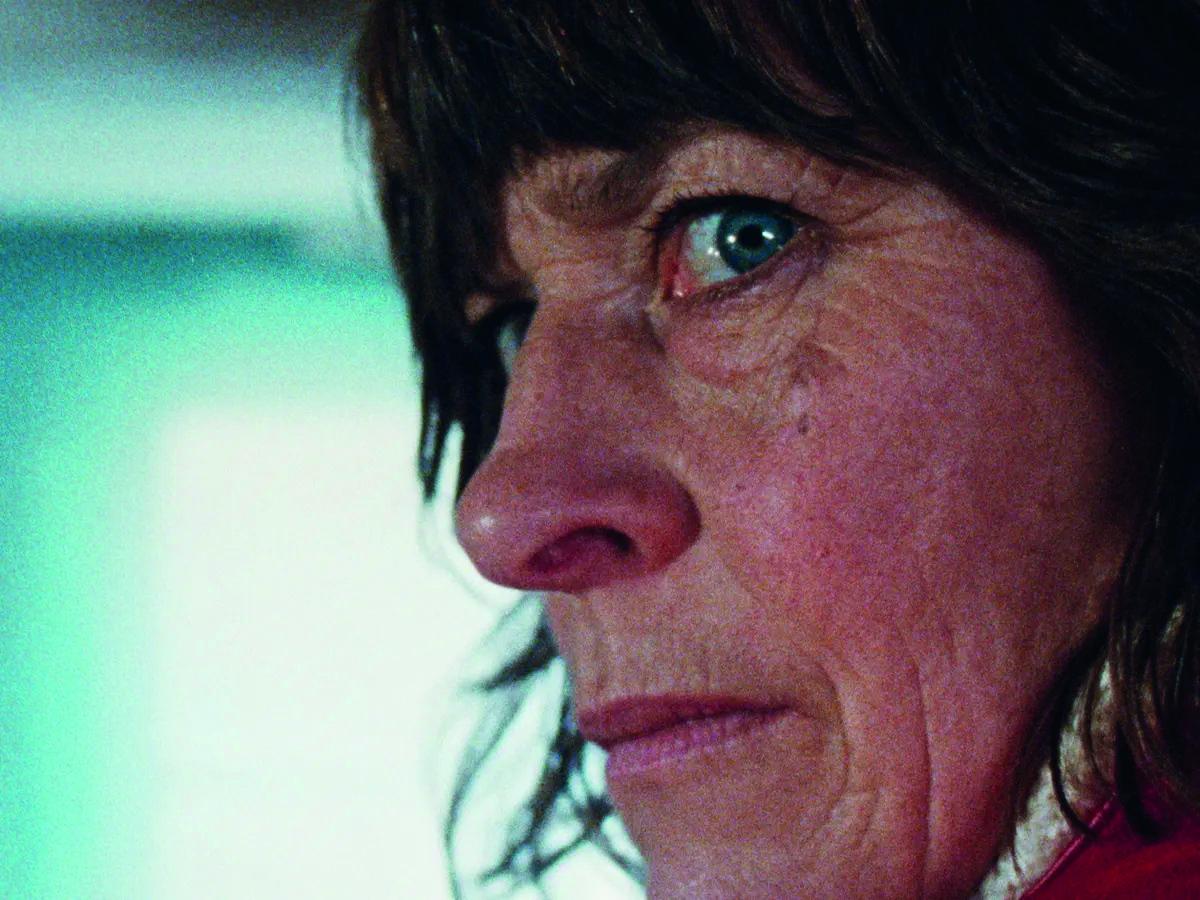
Jenkin will introduce a screening of Enys Men and take part in a Q&A on 13 January. On 14 January he will join filmmaker Ben Rivers for a post-screening discussion following Rivers’ Two Years at Sea.
Taking a meticulous approach to sound, Jenkin records dialogue, FX and atmospheres in post-production, leaving nothing to chance by recording on location. On 17 January he will be joined by Peter Strickland, another director for whom sound is as important as image, for Film Sounds: A Conversation Between Mark Jenkin and Peter Strickland.
Further highlights of this month’s events programme include the Woman with a Movie Camera Summit on 14 January. This year the programme focuses on creativity and exploration. Summit passes will give access to a day packed with talks, Q&As and panel discussions with filmmakers, curators and creatives, as well as workshops and drop-ins. The full programme line-up and ticket information will be posted online in early January. A number of talks and panels will be available to watch on the BFI YouTube channel in addition to Woman with a Movie Camera film collections on BFI Player.
Woman with a Movie Camera also presents a preview of All the Beauty and the Bloodshed (2022) on 14 January. Director Laura Poitras examines the life and career of legendary photographer and activist Nan Goldin, and her efforts to hold Purdue Pharma, owned by the Sackler family, accountable for the opioid crisis. It is a powerful and intimate portrait, weaving together Goldin’s art and personal archives with interviews and protest footage. An inspiring call to arms, this Venice Golden Lion winner is one of the best documentaries of the year and had its UK premiere at the BFI London Film Festival.
A TV preview of The Gold (Aneil Karia, 2022) takes place on 17 January. Inspired by the largest robbery in British history, this is a story of class, greed and personal tragedy in an era when cheap money and slashed regulations created a world full of ambition and criminality. Hugh Bonneville, Jack Lowden, Dominic Cooper, Charlotte Spencer, director Aneil Karia and writer Neil Forsyth join us for a Q&A following the first episode.
A special screening of Better Luck Tomorrow (Justin Lin, 2002) plays on 22 January. The solo directorial debut feature from Justin Lin is a darkly comedic gem, telling the story of a group of overachieving, affluent and bored Asian-American high-schoolers who dabble in petty crime. But their side scams and casual drug dealing soon result in mayhem. This screening is presented by programming collective MilkTea and will feature a spoken word performance by Sky Yang followed by a virtual Q&A with Justin Lin.
Nolly (Peter Hoar, 2022) previews on 26 January followed by a Q&A with writer Russell T Davies, actor Mark Gatiss, executive producer Nicola Shindler and director Peter Hoar. It’s an outrageously fun and wildly entertaining ride through Noele Gordon’s most tumultuous years; a sharp, affectionate and heart-breaking portrait of a forgotten icon. Nolly is a bold exploration of how the establishment turns on women who refuse to play by the rules and a love letter to a legend of television.
Mark Kermode, one of the nation’s most respected film critics, returns with Mark Kermode, Live in 3D at the BFI on 23 January. Joined by surprise industry guests, Kermode explores, critiques and dissects new and upcoming releases, film news, cinematic treasures and guilty pleasures.

FURTHER PROGRAMME INFORMATION
JANUARY SEASONS AT BFI SOUTHBANK
Full details for the Kurosawa and The Cinematic DNA of Enys Men seasons will be announced soon.
NEW RELEASES AND REISSUES AT BFI SOUTHBANK
Triumphantly delivering on the promise of his extraordinary debut, Mark Jenkin’s sophomore feature Enys Men (2022) opens on 13 January. On a remote island off the Cornish coast a nameless ecologist lives a life of isolation. But as changes suddenly appear on the plant she is studying, the boundaries between reality and fantasy begin to blur, plunging the volunteer into a nightmarish, metaphysical dreamscape. Fascinatingly abstract and almost dialogue-free, this is a throwback to the British folk horror films of the 1970s.
A dazzling period portrait of a woman determined to control her future and legacy, Corsage (Marie Kreutzer, 2022), which screened in the BFI London Festival, continues its run in January after opening on 27 December. It’s 1877 and Empress Elizabeth of Austria is gripped by melancholy and an increasing dissatisfaction towards her life, particularly her mostly performative royal role. Overwhelmed with keeping up appearances and her ever-tightening corset, she escapes Vienna for England in search of excitement. This is a subversive reimagining of a historical ruler, successfully blending humour with dark drama.
Re-releases this month include Rashomon (Akira Kurosawa, 1950). Unreliable narration is taken to a new level in this landmark film, one of Akira Kurosawa’s finest and a key work of Japanese cinema. BFI Distribution brings the film back to cinemas around the UK and on BFI Player from 6 January, coinciding with the first month of the Kurosawa retrospective. Honour, truth and treachery clash in this monumental drama, where a crime is witnessed and experienced from multiple perspectives. Toshiro Mifune, Machiko Kyô and Takashi Shimura each impress as three people who claim separately that they, and they alone, are responsible.
REGULAR BFI SOUTHBANK PROGRAMME STRANDS
BFI Southbank’s regular programme strands have something for everyone – whether audiences are looking for silent treasures, experimental works or archive rarities.
January’s Relaxed Screening, for those in the neurodiverse community, their assistants and carers, is The Hidden Fortress (Akira Kurosawa, 1958), with an intro and discussion. At a time of war, two opportunistic peasants attempting to reach home find themselves caught up in a struggle to save a rebel princess. Kurosawa’s adventure features slapstick comedy, swordfights and more than a little double-crossing. See the film that George Lucas drew inspiration from for Star Wars on 30 January.
African Odysseys presents Hussein Shariffe: A Life Between Exile and Homecoming on 7 January. Film artist Hussein Shariffe was a pioneer of Sudanese independent and experimental film. This study day includes screenings from his selected works including Tigers are Better Looking (1979) and The Dislocation of Amber (1975). Film historians and curators will consider Shariffe’s legacy in dialogue with the filmmaker’s daughter Eiman Hussein and will present perspectives from the ongoing archival retrieval and re-circulation of his work, both within and beyond Sudan.
This month’s Family Funday on 29 January is Willy Wonka & The Chocolate Factory (Mel Stuart, 1971). The winning combination of Roald Dahl’s story, a collection of memorable songs and Gene Wilder’s exuberant, charming turn as the reclusive, sweet-toothed entrepreneur ensure that four decades on, this remains one of the most beloved family films. Before the screening, join us in the Foyer for our drop-in workshop, where you can enter our competition to design your own Wonka chocolate bar. We’ll be awarding prizes galore for the most creative designs, so come armed with ideas and ready to get drawing. Free to ticket holders of the film.
Other Family offerings in January include The General (Buster Keaton, 1926), a comedy classic now widely regarded as Keaton’s greatest achievement, My Neighbour Totoro (Hayao Miyazaki, 1988), cited by Akira Kurosawa as one of his favourite Japanese films and the beloved, Oscar-winning masterpiece Spirited Away (Hayao Miyazaki, 2001).
Fans of Silent Cinema can enjoy Fritz Lang’s masterpiece Metropolis (1927) on 15 January. Expensive. Magnificent. Timeless. Essentially a parable, it foresees a logical conclusion to the processes of industrialisation and urbanisation in a dystopia where society has stratified into a few super rich, who live in godlike luxury high above the city, and the masses of expendable workers who labour in the lower levels.
A rare chance to see rediscovered British features from the BFI National Archive, Projecting the Archive presents Thunder in the City (Marion Gering, 1937) on 9 January with an intro from BFI Curator Jo Botting. When a brash advertising man arrives from the US, his methods take the Brits by storm. But success soon turns to disaster. Director Gering and a trio of top-rung US writers give the film a Hollywood slickness, with continental glamour supplied by Luli Deste.
BFI Southbank’s monthly Seniors offering on 9 January is the UK theatrical premiere of Wild and Free, Twice Daily (Chris Menges BSC ASC, 1969), a joyous sawdust and starlight documentary about the Roberts Brothers travelling circus. Accompanying this screening will be a rare chance to see two other films made early in their directors careers, including 9 DALMUIR WEST (Kevin Brownlow, 1962) and THE MEETING (Mamoun Hassan, 1964). The films will be followed by a Q&A with directors Chris Menges and Kevin Brownlow, as well as Sherief Hassan, editor of MovieMasterclass.com.
Celebrating diverse artistic forms, Art in the Making presents News from Nowhere (Alister Hallum, 1978) with an intro by Rowan Bain, Principle Curator at William Morris Gallery on 5 January. This attractive biopic, set in 1880, travels with William Morris, his family and friends as they navigate the Thames en-route to Oxford.
To mark the 40th anniversary of The First National Convention of Black Art at Wolverhampton Polytechnic, Experimenta presents Nations Finest, Putting down Roots and Birthing, an insightful, celebratory new film by Beverley Bennett. Commissioned by the Blk Art Research Group and Birmingham 2022, it pays homage to the pioneering Blk Art Group and its legacy and influence on the art scene and, more personally, Bennett’s own practice. The screening on 25 January will be accompanied by other short films related to the Blk Art Group and followed by an extended discussion with curator Ian Sergeant, Beverley Bennett and Blk Art Group members Claudette Johnson, Trevor Mathison, Marlene Smith and Keith Piper.



